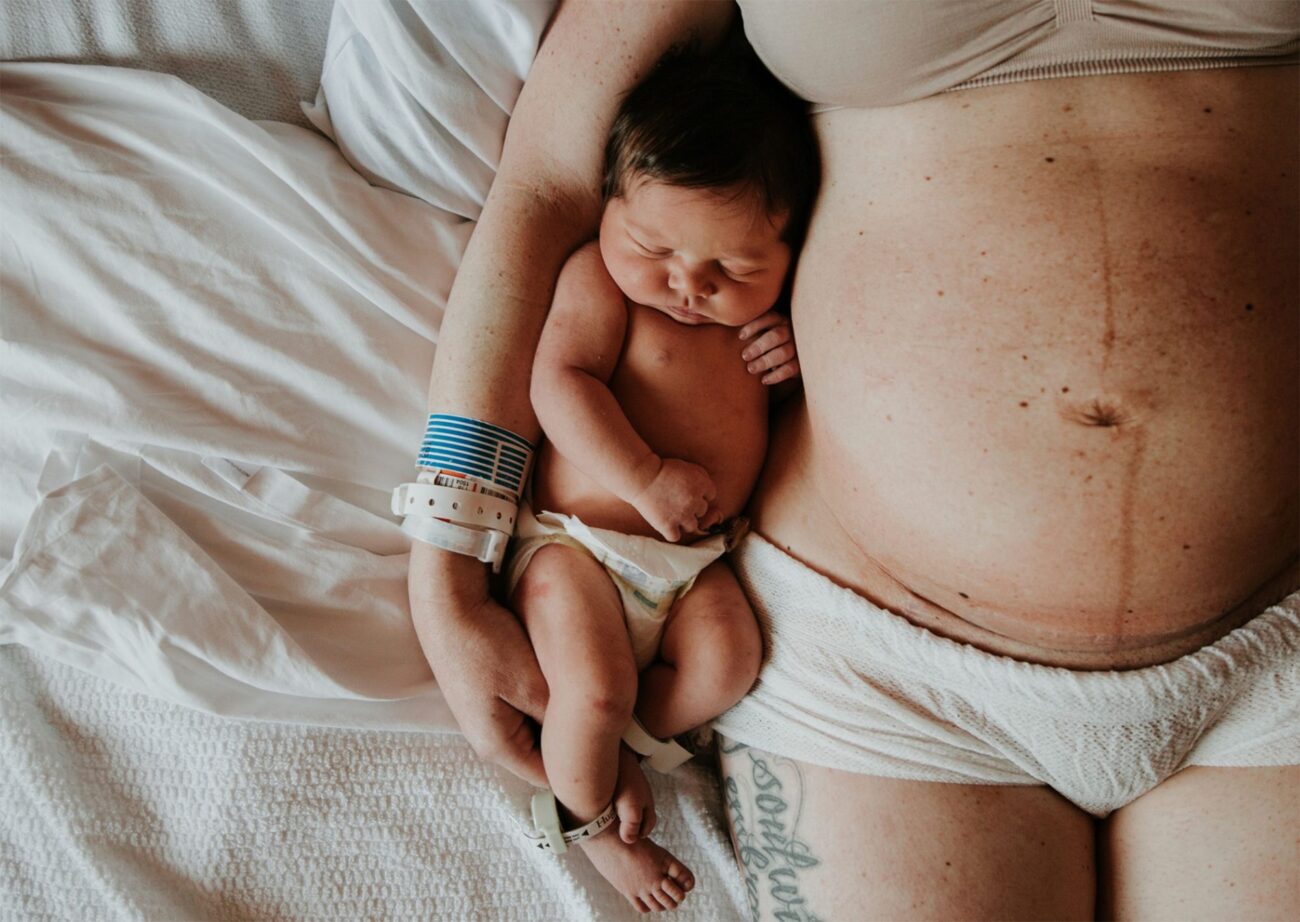During pregnancy, many women spend time learning everything they need to know about having a baby. From changes during pregnancy to the delivery- most women make it to the day of their birth well equipped with knowledge of the process. With so much to worry about leading up to the birth of your baby, you very well could be taking everything one step at a time. This mentality is what makes the postpartum period feel jarring to so many women. Those who have already been through the process always talk about how unprepared they felt for everything that happens after delivery. If you are pregnant with your first baby, keep reading for a guide on everything you need to know postpartum.

What Happens to Your Body After Birth
You will most likely spend the first 24 hours of your postpartum journey in the hospital if you had an uncomplicated vaginal delivery. This period of time will be spent receiving postpartum care or stitches if needed and learning how to breastfeed (or bottle feed). Your doctors will communicate your postpartum care requirements with you. Make sure to ask questions and raise any concerns that you may have while you are under the care of medical professionals. You will also be very tired, almost as if you’ve just run a marathon. You will be able to spend some of this time resting and cuddling your newborn.
Once you leave the hospital the recovery period begins. In the first six weeks you can expect a fair amount of vaginal bleeding (no matter how you gave birth). This is completely normal and will seem like a period but maybe heavier and longer-lasting. You will experience some minor cramping, but you should contact your doctor if you are experiencing abdominal pain or swelling, fever or large ongoing blood clots. This could be indicative of residual tissue in the uterus that will need to be removed.
Hormonal changes are also to be expected, especially in the first six weeks out. The actual birth will cause an incredible fluctuation in the hormone’s progesterone and estradiol. These hormones experience a significant and abrupt drop when you give birth after steadily rising throughout the pregnancy. This drop is what causes postpartum depression, anxiety, and mood swings. Postpartum depression can develop at any point in the first year after your birth, so don’t dismiss any emotional changes that occur after the initial six weeks. Don’t worry though, your hormones will return to normal as your fertility returns.
You can also expect to lose hair for the first six months postpartum. This is caused by the drop in estrogen levels. However, this will balance out as the increase in estrogen during pregnancy causes you to hold on to more of your hair. It may be startling to go from your luscious pregnancy locks to postpartum hair loss, but don’t worry too much as this will even out in a few months.
You will likely have a check in with your doctor as you approach the six-week mark. During this visit your doctor will assess the condition of your uterus and cervix. If everything comes back normal at this appointment, then you should be ready to return to your normal levels of physical activity. This is also when you can be cleared for sexual activity as well.

Life with Your Newborn
Postpartum recovery can be difficult, but it’s all worth it for the gorgeous baby you brought into the world. The early days with your baby will be an exciting and chaotic time. Experiencing your baby’s firsts and watching them grow are some of the most exciting parts of the journey. However, you will also be figuring a lot of things out during this time. If you are nursing your baby, this will be a significant part of the process. While your nurse will help you with the basics during your hospital stay, there are some things you can have on hand to ease the burden of feeding your newborn.
- Nursing Pillow: This can help tremendously with breastfeeding as it will help keep your baby in the optimal position for them to latch on. It will also help make the process significantly more comfortable for you.
- Breast Pump: Breast pumps can be useful for a variety of reasons. They can be used to help establish your milk supply or can alleviate engorgement that can happen if your baby favors one side. Many women will also use a breast pump to “pump and dump” after a night of alcohol consumption. This also enables your partner or a babysitter to feed your newborn with breastmilk should you need to step away for the day.
- Bottles: Even if your baby isn’t using formula, having bottles on hand can be extremely helpful. If you have breast milk from pumping, this will be necessary to use that supply. Having your partner be responsible for some of the feedings can help take a significant burden off you.
- Nursing Clothes: Acquiring a few good nursing bras or tank tops is a must for breastfeeding moms. These make it easy to feed your baby quickly and modestly when in public or in front of family or friends. Hatch has some of our favorite high-quality nursing wear, so check them out if you are in need of a few pieces.

Be Prepared
At the end of the day, all you can do is to try and be as prepared as possible. Motherhood is an amazing and magical journey that none of us ever feel completely prepared for. Being equipped with as much knowledge as possible about the postpartum journey is a good step but remember to be kind to yourself. You just brought a new life into this world and that’s something to be proud of! Just know that there are millions of new parents going through the same things you are, and these things come with time. Just trust the process and enjoy the time you have with your new baby.
The post The New Mom’s Guide: Everything You Need to Know Postpartum appeared first on FotoLog.
from FotoLog https://ift.tt/atXd856
via IFTTT



0 Comments